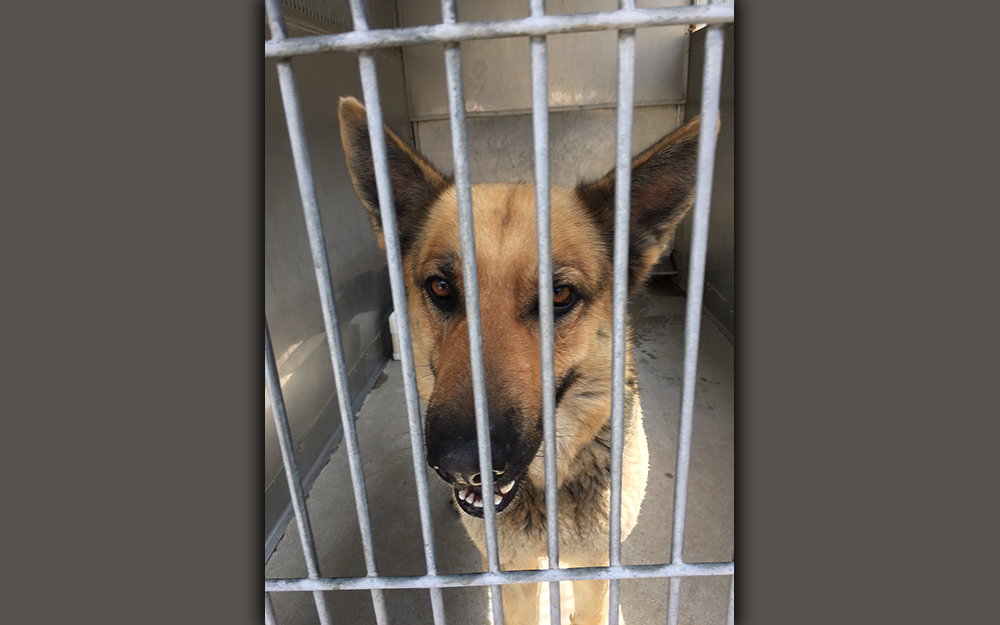
BY JANET McAFEE
Are you an animal lover looking to volunteer in an exciting life-saving program? You can help homeless dogs and cats by becoming part of the foster parent team at Loving All Animals. Spring’s warm weather has arrived, and Loving All Animals’ dog and cat rescue programs are losing many of their foster parents as the snowbirds exodus the Coachella Valley for cooler climates. The homeless animals keep coming all year long, and new foster homes are needed to provide a safety net for them.
Some homeless animals are abandoned in homes when their owners move or pass away without a plan for them. Some are picked up by animal control and taken to public shelters but never claimed. Some are relinquished at crowded open-admission shelters when their humans lose their home. Some are deliberately abandoned by callous owners and left to fend for themselves outside.
Fostering a homeless animal “expands the walls” of overcrowded shelters. Fostering provides love and socialization that help a dog or cat make a successful transition into a “furever” home. An animal that is scared in a shelter kennel usually thrives in a loving family home. Foster homes can also provide a safe place for a sick or injured animal to heal while it receives vet care. Fostering is a key component to rescue the euthanasia of shelter animals and help the Coachella Valley become a “No Kill” community.
Meanwhile, large dogs fill up endless rows of kennels in public shelters, peering out from behind the bars hoping for homes. I recently saw the beautiful German Shepherd pictured here at a local shelter, but sadly could not rescue him without an available foster home that would take in a large dog.
Coachella Valley residents tend to favor small size dogs. Our demographics include a significant number of retired seniors who prefer a small dog they can easily manage. Apartment dwellers and others without fenced in back yards may feel they are unable to provide the space and exercise a large active canine requires. Beautiful and adoptable large canines languish in shelters, and sadly some don’t make it out.
Here are some factors to consider if you are considering fostering a large breed pup. Most large breed dogs are incredibly smart and extremely easy to house train. Perhaps it is their larger size brain that allows them to process new information easily. Rarely does a large dog have an “accident” once they settle into their foster home. Most large dogs are relatively calm during their time inside the house, content to relax by your feet. They tend to reserve their energy for romping in the back yard and trips to the dog park. Large breeds are eager to please their humans, and they thrive when they learn new tasks.
Sharon Wren has fostered a record 52 dogs for Loving All Animals during the past 7 years. Sharon explains, “It is so rewarding for me and my grandchildren who live nearby to foster dogs. Each dog is so different, but they all respond to love. It’s hard to say goodbye, but knowing they are going to a wonderful life with their new family is a joy and blessing to me.”
How long would you foster? The time can be anywhere from a few days to a couple weeks. Our adoptable dogs are on various websites and adoptions usually happen quickly. If you have to go out of town, a replacement foster can be located.
Does it cost anything to foster? Loving All Animals provides pet food, supplies, training assistance, and pays for all veterinary costs. When possible, fosters bring their animals to “meet and greet” appointments as they can provide valuable information to prospective adopters.
Call Loving All Animals at (760) 834-7000 if you would like to foster a wonderful dog or cat. While there is a great need for people to foster a medium or large size dog, those who prefer a small animal are also welcome. Check out www.lovingallanimals.org and like “Loving All Animals Org” on Facebook. Fostering will bring you great joy when you are part of so many happy endings!
Jmcafee7@verizon.net












































